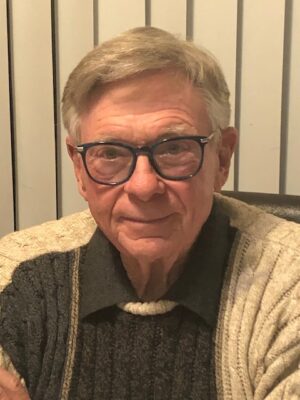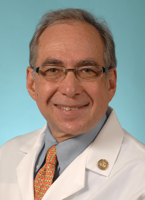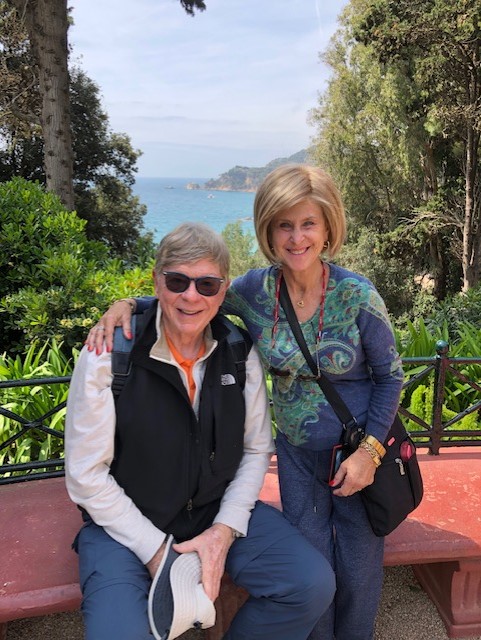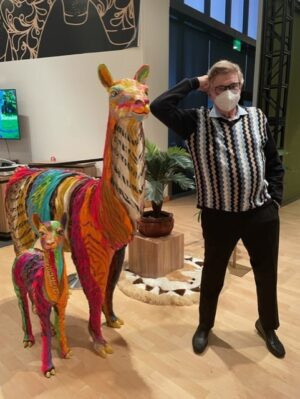
As an international expert in the care of patients with Multiple Sclerosis, Jack Burks, MD, has traveled to over 40 countries lecturing and evaluating MS patients. However, when looking back at his long, distinguished medical career – one filled with dedication, adventure, and personal risk – Dr. Burks admits his recent kidney transplant was one of the most dramatic experiences of his life.
At the age of 78, he is now two months into life with a new kidney.
“When I was a young neurologist, I had an adverse reaction to a medication that resulted in kidney damage,” says Burks. Over time, the damage progressed to End Stage Renal Disease (ESRD) and he decided that a kidney transplant was the path he wanted to take. “I knew a couple of people who had transplants and felt it would have the best result for me,” he says.
But the path to receiving a kidney transplant was not as smooth as he had hoped. “Despite being in good health (other than kidney failure) I was in my ‘70s. Several hospitals and universities rejected me for a transplant because I was too old.” Burks’ luck changed, however, when WashU Chief of Medicine Vicky Fraser, MD, Adolphus Busch Professor of Medicine, referred him to nephrologist Marcos Rothstein, MD, Professor of Medicine, Nephrology.

In the late 1970’s, Burks was a neurologist at the Denver VA Hospital and the University of Colorado and wrote an article in The Lancet (1976) describing several patients with ESRD, undergoing hemodialysis who were dying of a mysterious encephalopathy. In subsequent communications, Burks helped determine that aluminum toxicity in the dialysis water supply was responsible for this fatal disease. Dr. Rothstein vividly remembers this devasting epidemic and how it was vanquished. “I witnessed the scourge of an illness that poisoned blood, bones and brain resulting in an inexorable and painful early death for many dialysis patients. Water contamination with aluminum was then seen in only a few places, but universally prescribed aluminum compounds as phosphate binders were the standard of care around the world. Dr. Burks’ contribution identifying the cause and consequences of this epidemic helped bring understanding and health to kidney patients the world over.”
Says Burks, “I was fortunate enough to be seen by kidney experts at Barnes Hospital and Washington University in Saint Louis. Dr. Rothstein, now my St. Louis nephrologist, recalled my dialysis discovery. He became my hero as I battled renal failure.”
Burks waited on the transplant list for over two years. One night, with a blizzard covering the Midwest, Rothstein called him to say that a kidney was available. The problem? Burks was in Florida.
“Most of the flights to St. Louis had been canceled due to snowstorms, and it was the end of the Christmas holiday!” says Burks. “I would have to forgo the transplant opportunity unless I could get to Barnes Hospital by 9 am the next morning.” With the roads and airports closed by the blizzard, he thought there is no way he could get to St. Louis from South Florida. “My heart sank,” he recalls.
However, Rothstein, managed to book a flight for Burks to Chicago that night and arranged for a driver to get him from the Chicago airport to St. Louis by 9 am the following morning.
“I used the term ‘miracle’ to best describe my journey,” says Burks. “And I mean it. Once I arrived, the surgeons took over and performed a perfect transplant.”
Two months later, Burks is now recovering nicely in sunny Florida. “I was quite surprised that I only needed to be in the hospital for three days and my recovery went a lot faster than I, or my family, expected.”
The skills and “loving care” provided by the Barnes Hospital employees continue to amaze Burks. “I could not have imagined the level of care and expertise demonstrated by my health care team. I owe them my success – and my life. From the bottom of my heart, I want to thank ‘my team’ of miracle workers including the doctors, nurses, and support staff. The gates of heaven await them. I could not ask for more. Barnes/WashU Hospital is the best hospital that I have encountered in my more than 50-year medical career!”
Burks is also indebted to the family of the deceased kidney donor, who died in an auto accident. In a heartfelt letter to the family, he tells them: “Words cannot express my overwhelming feelings for you for allowing me the privilege of accepting a kidney from your loved one. I feel honored and humbled by your thoughtfulness and generosity in what must have been a very difficult time. I am truly sorry for your loss.… I thank God each day for my transplant and will think of you every day for the rest of my life.”

And, indeed, Burks is looking forward to this next chapter of his life. As a self-professed “eternal optimist,” he believes that his improved renal function will make all the difference in his daily life. Most importantly, he and his fiancé, Ellen Sussman, can finally make plans. His daughter is getting married in Germany in August, but they were not planning to go because of his health. “Now we are not only going to Germany, but we are also going on a Mediterranean cruise as part of that trip!”
“Call it karma or destiny, it is with pride and honor that the nephrology community is repaying a debt of gratitude to Dr. Burks,” says Rothstein. “And without the support of the Chief of Transplant Nephrology Tarek Alhamad, MD, and Chief of Solid Organ Transplant Surgery William Chapman, MD, none of this could have been possible.”

Follow @NephroMaven (Rothstein), @TransplantPulse (Alhamad), @WUTransplant and @WUNephrology on Twitter.